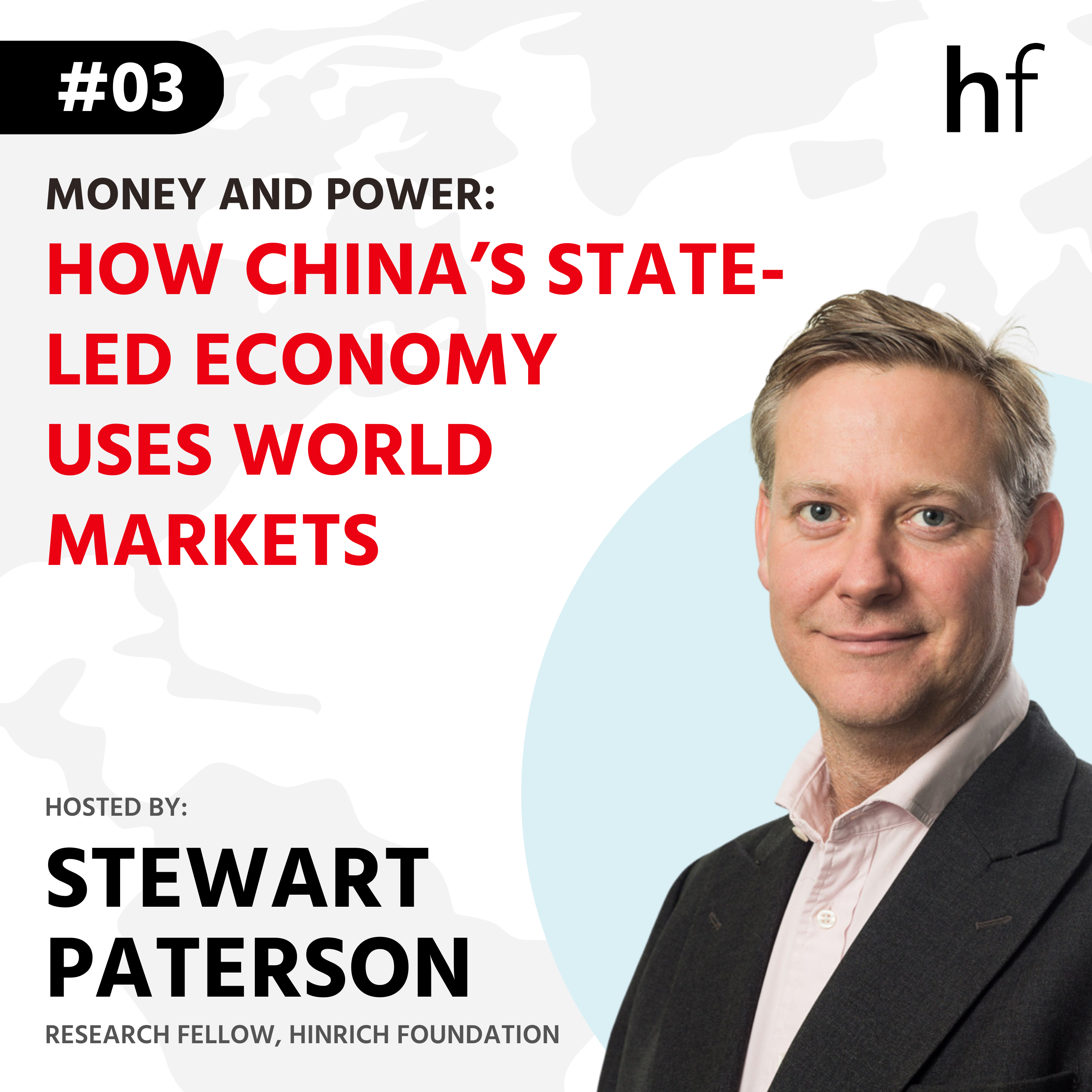Current Accounts: The Hinrich Foundation Trade Podcast
Money and power: How China’s state-led economy uses world markets
Published 25 April 2023
In this third edition of Current Accounts, the Hinrich Foundation's podcast on global trade, our Research Fellow Stewart Paterson speaks with Emily de la Bruyère, co-founder of Horizon Advisory and a senior fellow at the Foundation for Defense of Democracies, on China’s growing global export prowess, its leverage on world markets, and trade dependency in the technology sector.
Tune in to the third episode of the Hinrich Foundation’s podcast series here:
When China joined the World Trade Organization in 2001, the nation accounted for about 4% of global exports. That figure had risen to 15% in 2022. China’s growing export capacity reflects its rising dominance in global markets. Today, China maintains near-oligopolistic power in key technology-oriented sectors and manufacturing exports, de la Bruyère said.
The view that China remains the factory of the world for low-end consumer products is outdated. The nation has moved up from the lower rungs of critical value chains, and now enjoys comparative advantages in the higher value-added end of the chain. However, rather than being a market-driven outcome, this dominance, especially in technology, derives from a larger state-driven strategy for China to gain leverage and project its power internationally, she said.
Scale matters. China’s success is in large part due to its huge and centralized state system. The government's ability to decide which sectors to prioritize, identify champions within those sectors, provide generous capital and subsidies, and leverage strong network effects to scale up cannot be overstated.
While China expands its reach across global markets, regulatory bodies such as the WTO is key to ensuring fair play amid increasing competition and trade tensions. However, the effectiveness of such international institutions has deteriorated in recent years amid rising global geopolitical tension. Trade policies have become so intertwined with national security that geopolitics now often dictates or muddles trade relations. Paterson and de la Bruyère discuss these complexities in this Current Accounts podcast.
Here’s an excerpt of Emily de la Bruyère's conversation with Current Accounts:
|
Stewart Paterson: |
If we are looking at a sort of a state-driven acquisition of market power, maybe we should drill down into some examples and some specific products in which China appears to have come from nowhere or been a mere assembler of a part of a product and has actually gone on to obtain significant global market share. What would be your choice of products to illustrate this? |
|
Emily de la Bruyère: |
It is an amazing playbook, and you see the same thing really happening across sectors that China prioritises. Probably my favourite case as an instructive one is the solar energy industry. That is an area where in the 2000's, mostly US and European economies really controlled the value chain. They had the advanced technology, moving from polysilicon - which is like the upstream input into solar panels - solar ingots, wafer cells, solar panels. And it was, at that point, laughable that China would ever have the technological capacity necessary to even play, let alone rival those players.
And it has not been that long. But, starting then, beginning with a process of obtaining international technology, including through joint ventures, through acquiring companies that went out of business, and through forcing transfer of technology for players who wanted to operate in the Chinese market, Chinese players began to enter began to develop technological competencies, beginning at the upstream of the value chain, beginning at the process of polysilicon, and then moving down to the higher value- add steps. |
Tune into the Hinrich Foundation’s podcast series for insights on international trade.
© The Hinrich Foundation. See our website Terms and conditions for our copyright and reprint policy. All statements of fact and the views, conclusions and recommendations expressed in this publication are the sole responsibility of the author(s).



